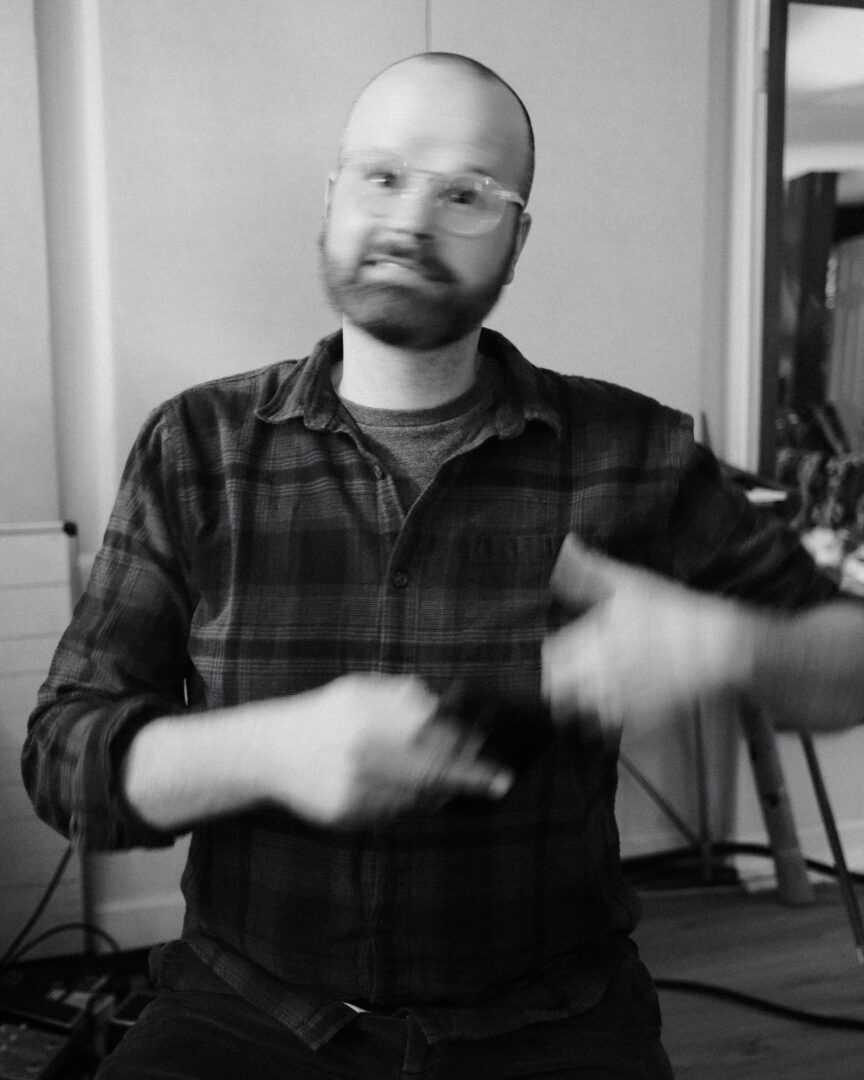We recently connected with Ben Underwood and have shared our conversation below.
Ben, so glad you were able to set aside some time for us today. We’ve always admired not just your journey and success, but also the seemingly high levels of self-discipline that you seem to have mastered and so maybe we can start by chatting about how you developed it or where it comes from?
Not from a great place, or an entirely healthy one anyway.
A couple of years ago I was officially diagnosed with ADHD, and more recently I’ve been grappling with the fact that I’m likely on the autism spectrum, though I haven’t yet been formally assessed on that front. In any event, what I’ve come to realize is that from a young age, I’ve done a lot of what’s known as “masking.” In fact, when this concept was introduced to me – i.e., the practice of disguising oneself so as to be socially, professionally, or otherwise presentable by hiding one’s authentic inclinations, interests, reactions, etc. – I was confused. I didn’t call that “masking.” I called it “leaving the house.”
But while masking is ultimately a destructive tendency when unchecked, I’m pretty good at it – having had a lot of practice. And you know what? The degree, frequency, and duration of my masking has required an enormous amount of self-discipline. I grew up in rural Georgia in a rigid religious context. I learned early and well that in order to fit in I needed to hide my actual thoughts, beliefs, and feelings. I learned this at such a young age, that it became second nature, and I suppressed what was first nature so effectively that I forgot it was there for a long time. That’s no way to live, but it does cultivate self-discipline.
I’ve always been good at forcing myself to do things. Whether it’s living so frugally that I survived (and built some savings) while earning only a paltry stipend in grad school, or producing hundreds of collages, or putting in more hours on a project than anyone thinks is reasonable. That capacity for self-discipline is powerful and has helped me get where I am in life, but it’s not an uncomplicatedly positive thing because, for me, self-discipline also has an aspect of self-denial leftover from my early lessons in masking.
And now I’m in this tricky place. I have tremendous self-discipline, yet it’s aligned with a pretty self-destructive side of myself. I’m only beginning to figure out what it means to tap into that self-discipline in a way that isn’t a form of self-denial or self-punishment.
Sometimes people remark on my self-discipline, and what I’ve realized is that it’s relatively easy to be self-disciplined when the idea of considering what you think or feel doesn’t enter into your calculations. If the goal is X and you accomplish X by doing a bunch of Y, then you just do Y whether you want to, feel up to it, or whatever.
It’s a great way to get things done. It’s not a great way to live. So while I owe a lot to my self-discipline, it has also almost destroyed me.

Thanks, so before we move on maybe you can share a bit more about yourself?
I’m a musician and collage artist, at least it is in these capacities that I’m engaging in this interview. You can find everything you could ever want to know about me at indoorcondor.com, and I’m on more social media platforms than I care to think about.
I earn a living by doing fundraising for nonprofits. I’ve been at it a long time, and I’m fairly successful. What I appreciate about that part of my life is that it enables me to be completely unconcerned with the commercial viability of my creative output.
In other words, even if no one likes my music or wants to see my collages, that’s okay. And this is crucially important for me to be able to engage in creative work. Given my tendency to suppress my authentic inclinations, having the freedom to pursue music and art without concern for how it will be received is incredibly freeing for me. Creativity is the space where I can follow my inclinations without concern for all the pressures that have driven me to mask so completely throughout much of the rest of my life.
Last year, I put out my first album under the band name Indoor Condor. I pressed a limited edition record on blue-green vinyl. It came out really well. To go along with each copy, I made a collage in the same style as the cover art. I wanted to give folks a little something extra with the album, and a piece of original art is something I can offer that most bands can’t. I also included a sticker and lyrics booklet. It’s a nice little package. You can still pick it up over at indoorcondor.bandcamp.com.
Having the album out in the world has gone a long way toward making me feel like a legitimate musician. You can imagine that as someone who masks almost all the time, I experience a lot of imposter syndrome, and as I embrace the more authentic parts of myself, it’s very confusing because feeling the sense of peace that comes from doing the things you are built to do is so unfamiliar to me. In many ways I’m more comfortable experiencing the discomfort of conforming to others’ expectations than “being myself” or whatever. The record gave me a concrete touchstone I could rely on to reassure myself that I am actually a musician. And putting it out has helped me find friends and collaborators. I’ve found a drummer who is a lovely friend and we’re playing shows together. It’s a lot of fun.
To promote the record, I did kind of a crazy thing. I ran a pop-up record store in the local mall here in Asheville for two weeks. But here’s the hook: this record store sold only my record. It was a fun publicity stunt, and it helped me reach some people who probably would never have encountered my music or art otherwise. People would come into the store, and then experience some confusion when they realized the racks contained many copies of only one album. Sometimes they left immediately; sometimes they hung out; sometimes they bought a record. In any event, it was probably a more interesting experience than they had had at the mall in quite some time.
Now I’m hard at work on a follow-up album. I’m about halfway done–with 11 songs clocking in at about 18 minutes total. I’m going to try to get somewhere between 30 and 40 minutes for the album. I write short, fast songs, so the track count will be high even if the record is brief. I call the genre Pajama Rock because I write and record in my pajamas. A frequent conversation I have:
Them: What kind of music do you play?
Me: Pajama Rock
Them: What’s Pajama Rock?
Me: Fast songs about death
I think I’ll release this next album on cassette, just to try out a different obsolete medium. I’ve even toyed with the idea of doing a limited edition on floppy disk, just to push the absurdity of physical media a bit further. We’ll see.
I’ve also done some craft fairs/art markets, selling records and collages, and that’s been another fun and interesting way to engage people and introduce people to my art. I really like finding ways to reach people other than just playing shows, and I LOVE playing shows, but booking and promoting is a drag, so it’s fun to mix it up with these other ways of bringing my stuff to the people.
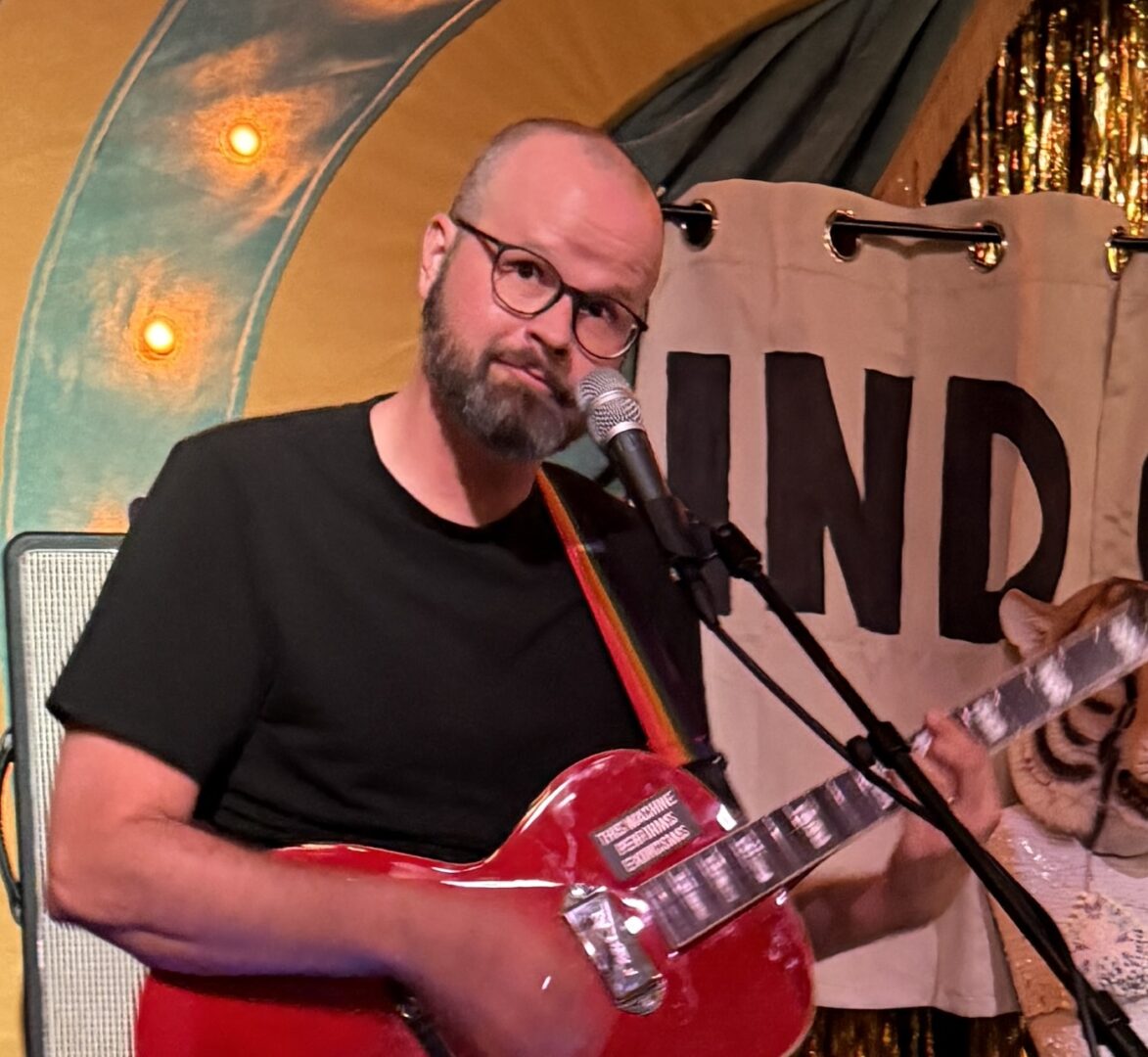
There is so much advice out there about all the different skills and qualities folks need to develop in order to succeed in today’s highly competitive environment and often it can feel overwhelming. So, if we had to break it down to just the three that matter most, which three skills or qualities would you focus on?
1. You already know how to do it. Whatever it is. Or if you don’t, you won’t really know that you don’t until you try, and you also won’t learn how until you try. So just get started.
2. Do the thing that only you can do. Lots of people play songs. Lots of people make art. And if you can do those things with the skill of the great masters, awesome. But what’s most interesting is when someone is doing something singular, that could only be done by them. Sometimes these things are virtuostic, sometimes they are bizarre or off-kilter or unappealing to most people, but they are infinitely more compelling (in my view) than a polished replica of the thing done well.
3. Do the thing the way it needs to be done. (This is distinct from 2 above.) As you tune into the thing only you can do, the work will tell you how it needs to be. Listen to the song in your head. See the image in your mind’s eye. Follow that. Pull it out of the aether and into existence. It doesn’t matter if it’s good. It doesn’t matter if it makes sense. You can feel it when you’re being true to the thing itself. Trust that.
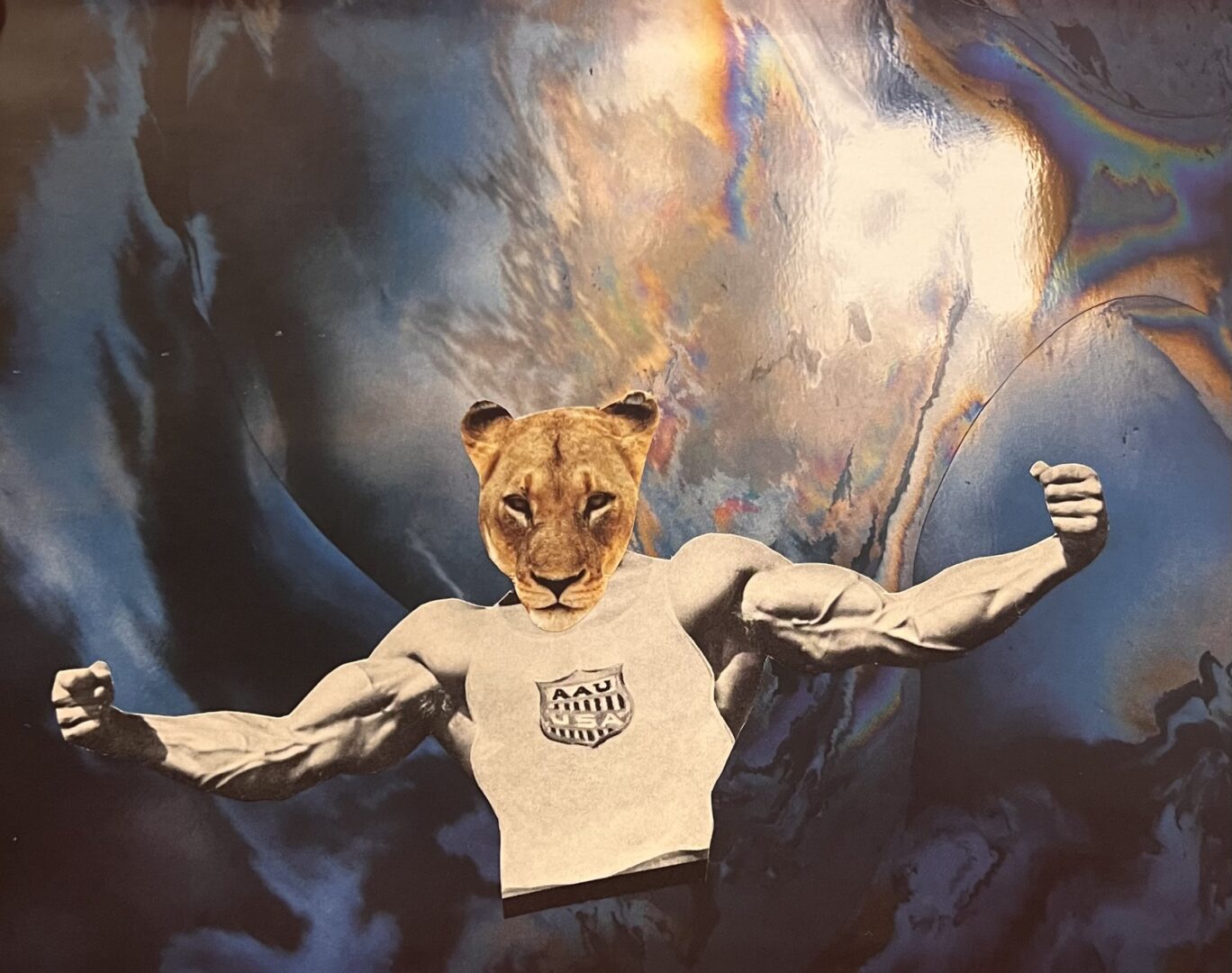
Awesome, really appreciate you opening up with us today and before we close maybe you can share a book recommendation with us. Has there been a book that’s been impactful in your growth and development?
My favorite book is Tractatus Logico-Philosophicus by Ludwig Wittgenstein. In this book of 100 or so pages written while he was a POW during WWI, Wittgenstein sets out to do nothing less than solve all the problems of philosophy. Spoiler alert: he does. And I’ll conclude with the final line of that book: “Whereof one cannot speak, thereof one must be silent.”
Contact Info:
- Website: https://indoorcondor.com
- Instagram: https://www.instagram.com/indoor.condor
- Facebook: https://www.facebook.com/ben.underwood.92351
- Youtube: https://www.youtube.com/channel/UCmJ9PqYuKCTQB5iUhyCAgRg?si=VonoFpoigSmHs1oo
- Other: https://open.spotify.com/artist/7rKIsn7r17mrho2V3IfwqN
https://substack.com/@indoorcondor
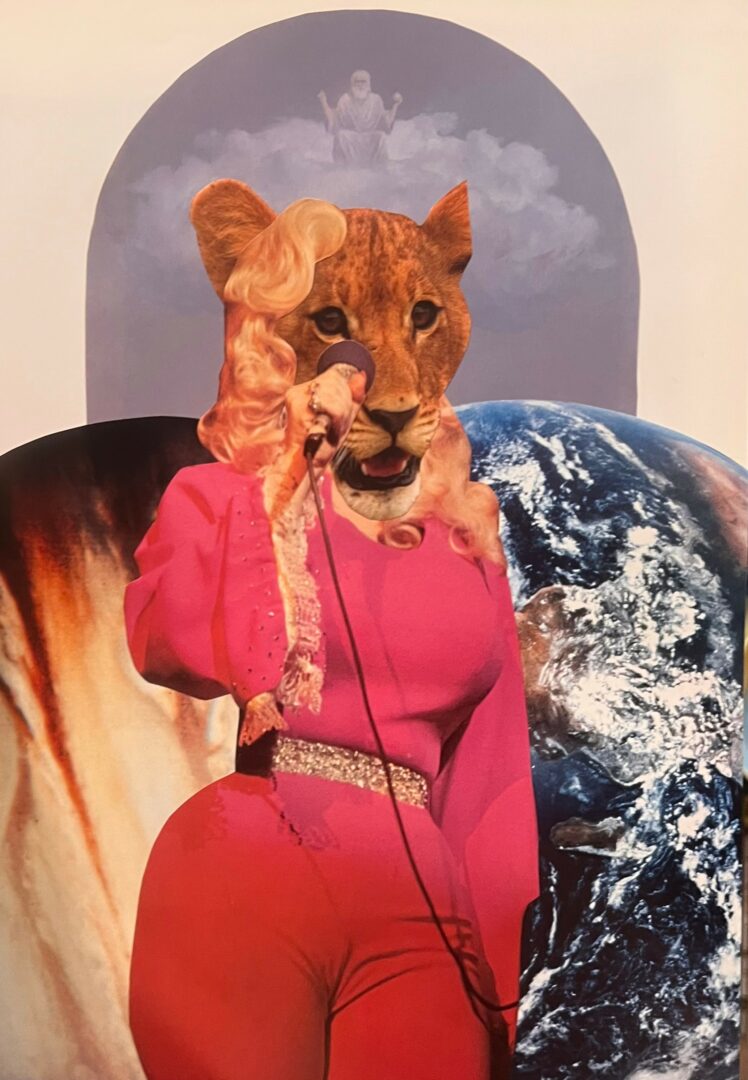
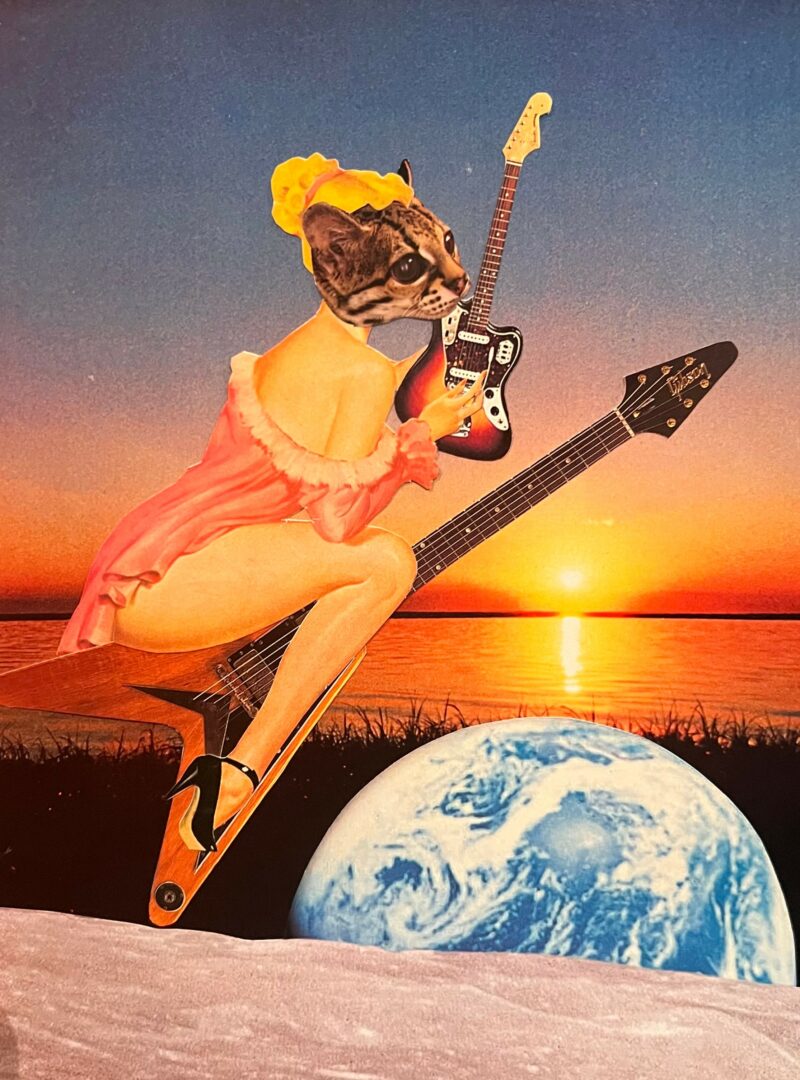
Image Credits
Kris Sampson, Carrie Underwood
so if you or someone you know deserves recognition please let us know here.

